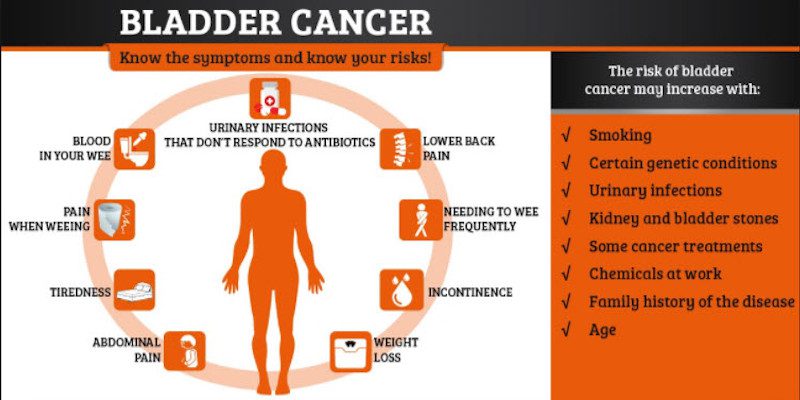Immunotherapy Drug – A Promising Treatment to Lower the Risk of Bladder Cancer Recurrence after Surgery:
Bladder cancer is a common malignancy that affects millions of people worldwide. One of the challenges in treating bladder cancer is the high risk of recurrence, even after surgical removal of the tumor. However, recent advancements in cancer treatment have shown promising results in reducing the risk of bladder cancer returning after surgery. One such breakthrough is the use of immunotherapy drugs, which have shown great potential in lowering the risk of bladder cancer recurrence and improving patient outcomes. If you or your loved ones are battling cancer, you can treat your different types of cancer at different stages with the help of the finest Immunotherapy in Delhi, India. Here in this blog, we will discuss how immunotherapy treatment lowers the risk of bladder cancer and its advantages.
Immunotherapy treatment lowers the risk of bladder cancer:
Bladder cancer is often treated with surgery, which involves removing the tumor from the bladder. However, even after the successful surgery, there is a high risk of cancer cells remaining in the bladder, leading to the recurrence of the disease. This is where Immunotherapy comes into play. It is a type of cancer treatment that works by harnessing the body’s immune system to target and destroy cancer cells.
Read More Blog: Immunotherapy For Cancer Treatment In Delhi
One Immunotherapy drug that has shown remarkable success in lowering the risk of bladder cancer recurrence is pembrolizumab, which belongs to a class of drugs known as immune checkpoint inhibitors. Pembrolizumab works by blocking a protein called PD-1 in immune cells, which helps to activate the immune system and enhance its ability to identify and destroy cancer cells. By doing so, pembrolizumab helps to prevent cancer cells from evading the immune system’s detection and attack, reducing the risk of cancer recurrence after surgery.
Researchers have conducted multiple clinical trials to assess the effectiveness of pembrolizumab in reducing the risk of bladder cancer recurrence following surgery. One notable trial is the KEYNOTE-045 trial, which involved patients with advanced bladder cancer who had undergone surgery to remove the tumor. The trial results showed that pembrolizumab significantly reduced the risk of cancer recurrence compared to standard chemotherapy, leading to improved overall survival rates.
In addition to pembrolizumab, other immune checkpoints inhibitors, such as nivolumab and atezolizumab, have also shown promising results in lowering the risk of bladder cancer recurrence after surgery. These drugs received approval for treating advanced bladder cancer and are currently undergoing clinical trials to explore their potential in reducing the risk of recurrence after surgery.
Positive aspects of Immunotherapy:
Immunotherapy offers a notable advantage with its comparatively favorable safety profile when compared to traditional chemotherapy. Unlike chemotherapy, which often leads to adverse effects like nausea, hair loss, and immune suppression, immunotherapy drugs like pembrolizumab typically exhibit fewer side effects and are better tolerated by patients. This makes them a more attractive option for bladder cancer patients who have undergone surgery and are looking to lower their risk of recurrence without experiencing debilitating side effects.
Read More Blog: How Does Immunotherapy Help In The Fight Against Cancer?
Another advantage of immunotherapy is its potential to provide long-term benefits. Unlike chemotherapy, which is typically given in cycles, immunotherapy is often administered continuously, allowing for sustained immune system activation and cancer cell destruction. This prolonged effect may help to prevent the regrowth of cancer cells in the bladder and reduce the risk of recurrence over the long term.
It’s important to note that:
- Not all bladder cancer patients are eligible for immunotherapy. Immunotherapy is typically reserved for patients with advanced or metastatic bladder cancer, as well as those at a high risk of recurrence following surgery.
- Eligibility for immunotherapy is determined on a case-by-case basis by the patient’s oncologist, taking into consideration various factors such as the stage and type of bladder cancer, the overall health of the patient, and previous treatments received.
Immunotherapy drugs like pembrolizumab show promise in reducing bladder cancer recurrence after surgery. They harness the body’s immune system to target and eliminate cancer cells, preventing their spread. Clinical trials and real-world data support the efficacy of pembrolizumab and other immunotherapy drugs, especially for high-risk bladder cancer patients. Immunotherapy represents a significant advancement in oncology, providing a new approach to managing this complex disease. However, more research is required to optimize patient selection, dosing, and combination therapies to maximize the benefits of immunotherapy in bladder cancer treatment.
So if you want to resist cancer, look no further than Oncoplus, the leading cancer hospital in Delhi. Our state-of-the-art facility offers cutting-edge immunotherapy treatments that harness the power of the body’s immune system to fight cancer effectively. With a team of highly skilled oncologists and advanced technology, we provide personalized care and treatment plans for various types of cancer. Experience the latest advancements in cancer care at Oncoplus, where hope meets innovation. Contact us today to book a consultation and take a step towards a brighter tomorrow!

